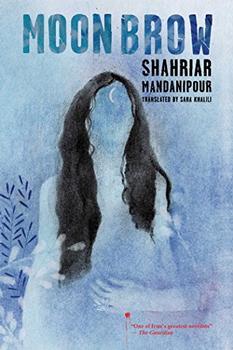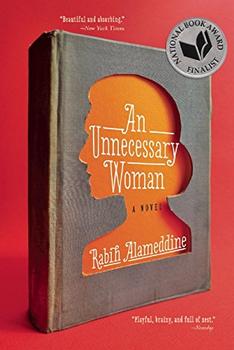Summary | Excerpt | Reading Guide | Reviews | Beyond the book | Read-Alikes | Genres & Themes | Author Bio

Shahriar Mandanipour's English-language debut is an expansive, wry and funny examination of censorship in Iran narrated by a writer of fiction who shares Mandanipour's name. The novel's characters live between reality and fantasy, in a world where flying carpets, alchemy, talismans, and ghosts appear naturally alongside references to contemporary pop culture.
The novel's two plot lines, the story of the writer and that of the two lovers, are distinguished by bold-face type, while strikethroughs denote passages the fictional author has chosen to delete. Sara and Dara, named for the Dick and Jane of Iranian children's books, are based on "real" people who the narrator follows around Tehran, and eventually confronts when one is about to diverge from the path he'd intended to write.
Of these two threads, the more revealing one is the author's. He often addresses his readers directly, imploring them (us) to question him so he can expand his ideas. A digression on ancient Iranian poetry's florid descriptions of sex is brilliant (readers familiar with the Bible will see shades of the doves and vineyards of "Song of Solomon"). The author is compelled to say of this plethora of metaphors, "This too is another discovery of why invaders could occupy our country so easily. When the king spends twenty-four hours in the flower bed, the garden, the zoo, and underwater, and then sleeps for twenty-four hours, when does he ever find time to run the country?"
This gentler form of national commentary prevents the novel from becoming an eviscerating political critique. The author does not, however, refrain from revealing a few brutal truths. In one scene, a shocked Sara and Dara witness a bloodied bride being rushed through the ER, and we are left to surmise she has been raped by her groom. The author, too, finds himself wondering whether the ancient poet's descriptions of lovemaking were also censoring a similarly violent scene - a disturbing though not implausible conclusion.
Censorship takes many forms in the novel, sometimes with bizarre results. In one case, the government employs a blind man to screen movies for questionable scenes with the aid of several advisors, and in another we learn that even naming one's children requires approval of the state bureaucracy.
In a society whose laws restrict freedom of speech, the struggle to create a meaningful story reads like a trip through a house of mirrors. When his fictional counterpart writes a few particularly scandalous scenes, and even has his characters discussing the stories of Shariar Mandanipour, the real Mandanipour's delight in his project shines through, even in translation.
Readers who enjoy metafiction (like Italo Calvino's If on a Winter's Night a Traveler or Aleksandar Hemon's The Lazarus Project) will be especially appreciative of the self-referential aspects of Censoring. For other readers, Mandanipour's novel could almost be read as an anthropological investigation of love, courtship and human nature. More than reportage or straightforward romance, Mandanipour offers a contemporary interpretation of one of the oldest themes. Though love may not be absolutely transcendent in this story, its pursuit presents a rewarding collage of history, magical realism and intrigue.
![]() This review was originally published in The BookBrowse Review in June 2009, and has been updated for the
June 2010 edition.
Click here to go to this issue.
This review was originally published in The BookBrowse Review in June 2009, and has been updated for the
June 2010 edition.
Click here to go to this issue.

If you liked Censoring an Iranian Love Story, try these:

by Sara Khalili, Shahriar Mandanipour
Published 2018
From "one of Iran's most important living fiction writers" (The Guardian) comes a fantastically imaginative story of love and war narrated by two angel scribes perched on the shoulders of a shell-shocked Iranian soldier who's searching for the mysterious woman haunting his dreams.

by Rabih Alameddine
Published 2014
From the author of the international bestseller The Hakawati comes an enchanting story of a book-loving, obsessive, seventy-two-year-old "unnecessary" woman with a past shaped by the Lebanese Civil War
A classic is a book that has never finished saying what it has to say
Click Here to find out who said this, as well as discovering other famous literary quotes!
Your guide toexceptional books
BookBrowse seeks out and recommends the best in contemporary fiction and nonfiction—books that not only engage and entertain but also deepen our understanding of ourselves and the world around us.